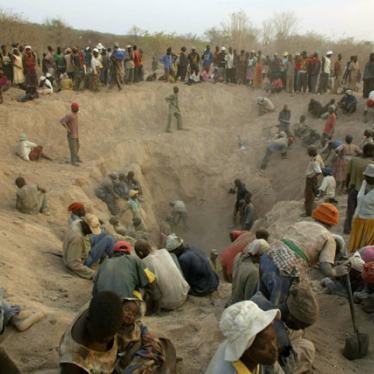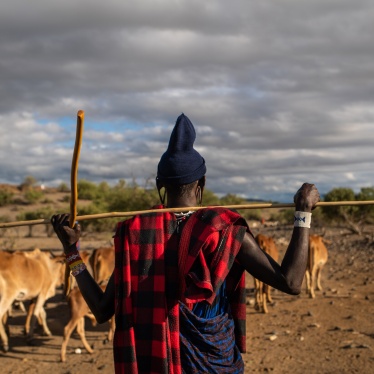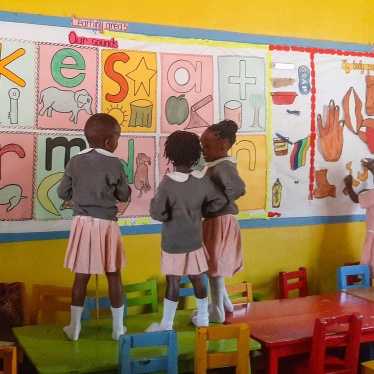When people buy diamond jewellery, they often want to convey love or commitment to someone dear and special. But, this jewellery, if it contains diamonds from the Marange diamond fields in eastern Zimbabwe, could have a bloody past signifying mistreatment and abuse.
Few outsiders have penetrated the closely guarded diamond fields in Marange. But, Human Rights Watch travelled regularly to the area in 2009 and interviewed more than hundred victims and witnesses of horrific human rights abuses. We documented the killings of hundreds of people by the Zimbabwean military, torture, and the use of forced labour - including children - in the diamond fields.
People near the military-controlled fields live in constant fear and in abject poverty, benefiting little from the diamond riches that surround them. The beneficiaries of this diamond wealth are largely members of the military, government-appointed corporate entities, and officials in President Robert Mugabe's inner circle. They have unfettered access to the fields and seek to use diamond revenue to maintain their grip on power, despite the targeted international sanctions against them.
Mugabe is now part of a government based on a power-sharing deal with the former opposition party, with which he refuses to share either actual power or diamond revenue. Global attention to these blood diamonds can be a critically important means of curtailing Mugabe's human rights violations and securing a genuinely inclusive government.
Eight years ago, in the aftermath of horrific abuses committed by West African rebel groups enriched by diamond wealth, an international body backed by the United Nations was founded to ensure that traders and consumers could identify blood diamonds and prevent their trade. The group - the Kimberley Process Certification Scheme - now represents seventy-five countries, including Zimbabwe, and claims to cover 99% of the global rough-diamond industry.
Recently, like Human Rights Watch, a Kimberley Process review mission found that diamonds in eastern Zimbabwe are mined under conditions of serious human rights abuses, with endemic smuggling and rampant corruption, in breach of the standards set by the organisation, which require members to ensure that diamonds are lawfully mined, documented and exported.
The Kimberley Process works by consensus, though. Because its members include Namibia, Russia and South Africa, which support Mugabe, the group decided in November 2009 not to suspend Zimbabwe or ban the sale of its stones. Its weak excuse was a technicality in the Kimberley Process mandate that defines blood diamonds as those mined by abusive rebel groups, not abusive governments. Clearly, it should not matter who carries out the abuses.
The Kimberley Process did urge Zimbabwe to remove its military from the diamond fields and make other crucial reforms. Latest Human Rights Watch research, however, suggests that the situation in Marange remains largely unchanged. Despite Zimbabwean claims that the army was withdrawing, for the most part, the diamond fields remain under firm military control, with smuggling, abuses, and corruption unchecked. Zimbabwe has not taken any steps either to investigate or to hold to account members of the army and police responsible for abuses in the diamond fields.
Blood diamonds continue to be mined and sold from Marange and find their way into jewellery stores worldwide. The stones often get smuggled into world markets via unregistered traders in neighbouring countries such as Mozambique or South Africa. These countries either do not or cannot certify the origin and flow of the stones, which then become intermingled with legitimate gems.
Given these developments, the Kimberley Process is in real danger of irrelevance, if not collapse. It is failing in its core mission of keeping blood diamonds out of international markets. Many in the diamond trade support the Kimberley Process because they believe it addresses consumer concerns about conflict diamonds that could damage the industry. Consumers are again beginning to ask: "How do I know this diamond is not financing serious human rights abusers?" This is not good for the diamond business, and retailers know it.
We should all send a strong message to the diamond industry, the smugglers, and those running these abusive mining operations: It is not acceptable to trade in stones mined by children whose labour was coerced, women who have been raped, or men who have been tortured. Diamond mining in Zimbabwe has inflicted great harm. We need to ask ourselves whether that is a moral price to pay for a stone.







